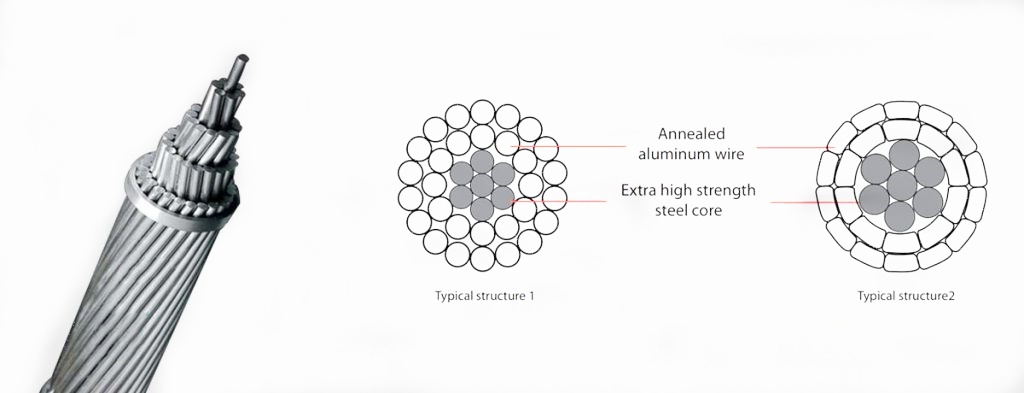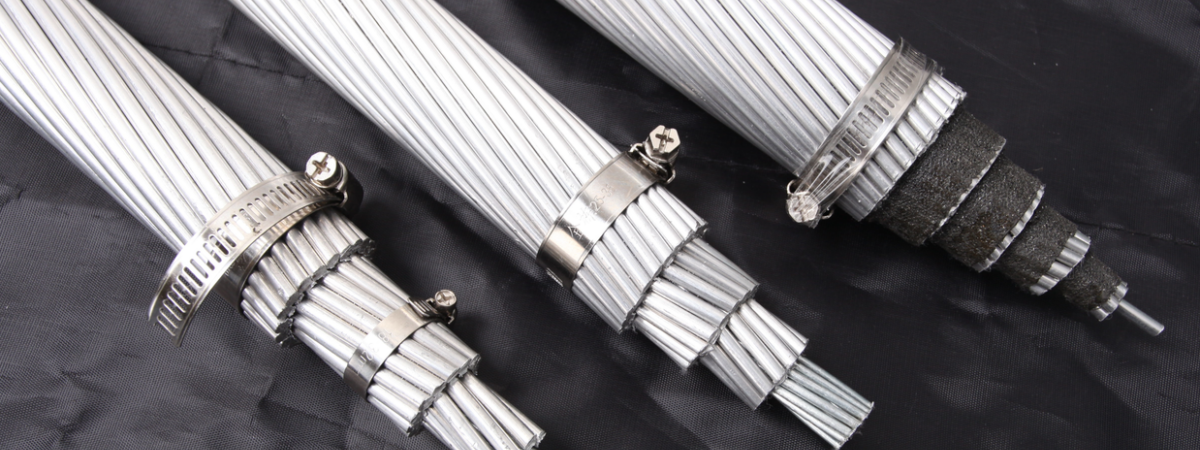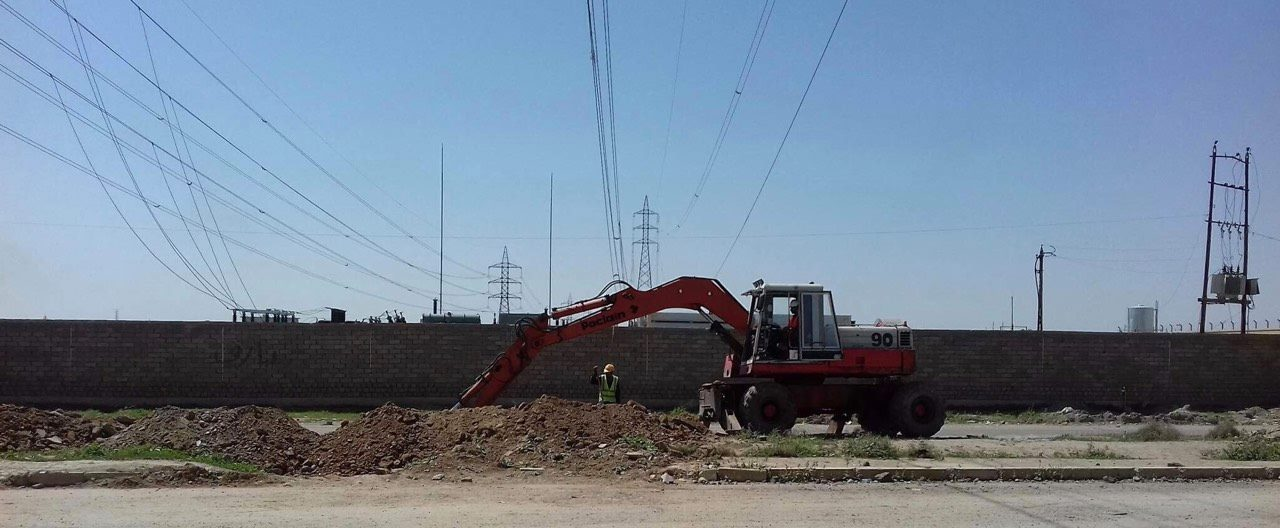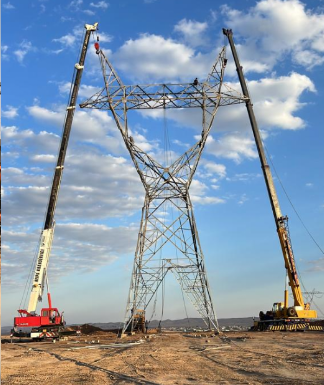The Iraqi Ministry of Electricity was established in 2003 and has been the Electricity Regulatory Authority (ERA) since 1999, before that it was the Electricity Department under the Ministry of Industry and Minerals.
It is responsible for distribution policy development and electricity supply throughout Iraq.
Operational functions such as generation, transmission, load dispatch, and distribution are no longer autonomous corporatized entities but have been reorganized into 18 geographically divided departments within the Ministry of Electricity.
The collaboration between ZMS and the Iraqi Electricity Authority has been a success. During the project, ZMS supplied many 132 kV overhead high voltage transmission lines for infrastructure and line rehabilitation.

High voltage overhead transmission lines are a critical component of the electrical grid.
They are responsible for transporting electricity over long distances from power plants to substations, where it is then distributed to homes and businesses.
These lines, which often stretch across vast landscapes, are engineered to handle high voltages efficiently, minimizing power loss and ensuring a stable supply of electricity.
This essay explores the structure, importance, and challenges associated with high voltage overhead transmission lines.
High voltage overhead transmission lines play a crucial role in modern power systems. Their importance can be understood through several key benefits they provide:
1. Efficiency: High voltage transmission is more efficient for transporting electricity over long distances because it reduces energy losses. The higher the voltage, the lower the current for the same amount of power, and since energy loss due to resistance in the conductors is proportional to the square of the current, higher voltages mean significantly lower losses.
2. Cost-Effectiveness: By reducing energy losses, high voltage transmission lines lower the overall cost of electricity. They also reduce the need for additional power plants by maximizing the use of existing generation capacity.
3. Grid Stability: High voltage lines contribute to the stability and reliability of the electrical grid.
They facilitate the integration of diverse energy sources, including renewable energy, by transmitting electricity from remote areas where these resources are often located to urban centers where demand is highest.
4. Scalability: As electricity demand grows, high voltage lines can be upgraded or new lines can be added to increase the grid's capacity without significant changes to the existing infrastructure.
With the rapid development of modern society, the development of high-voltage overhead lines is playing a very important role in any country. And the advantages of high-voltage overhead cables are becoming more and more compelling.

The country of Iraq, in terms of the international situation, has always been in a state of war, which has led to a decline in the standard of daily life and the level of electricity of its population year after year, to the extent that many of them even live in slums and are not able to enjoy the conveniences of electricity in the modern world.
Iraqi Minister of Electricity Ziad Ali Fadil said in a statement that the project's third phase is expected to reach 500 megawatts of electricity transmission capacity with the interconnection of the Iraqi, Jordanian, and Egyptian power grids.
Minister Fadil emphasized that the completion of this new grid marks the complete resolution of the decade-long plight of the residents of the Rutbah region in terms of power shortages, thus ensuring that they can enjoy a stable and continuous supply of electricity.
It is worth noting that the electricity supply situation in Iraq has deteriorated steadily over the past 21 years, with the population having to rely on private generators to meet their domestic and commercial electricity needs.
Previously affected by U.S. sanctions, Iraq has been in arrears for several years in electricity bills by the self-care of Iran forced to pull the electric switch, the people of southern Iraq into a more severe than in previous years, "power shortage".
Burhan in Baghdad, a Chinese communications company as a sales manager, his sister is a doctor, and his brother is an engineer, in Iraq is considered to have a more affluent middle-class life.
For families like his, power cuts don't bother him, and he can go to small private power plants to buy electricity - a lucrative business spawned by the huge shortfall in supply.
However, purchasing electricity from private owners is expensive. According to Burhan, it costs $20 per amp.

Since Burhan's family works during the day and only concentrates on electricity at night, they spend about $35 a month on electricity from private owners.
Mahmoud, who lives in Erbil, spends $100 a month on electricity, which is the average monthly cost for an Iraqi to purchase electricity from a private power plant.
Such high electricity expenses do not match the income of the average Iraqi.
In Iraq, which has experienced more than a decade of war and chaos, the average monthly salary of government workers is only 400 U.S. dollars, and nearly 30 percent of the population is struggling to stay on the poverty line, with no access to air conditioners and fans, and they can only pray under the scorching Baghdad sun.
"That's why I have to work hard and make money." According to Burhan, some cities in southern Iraq are supplied with electricity for only four hours a day, and some even less, only two to three hours.
On this occasion, ZMS Cable is honored to work with the Electricity Authority of Iraq to improve the critical situation of power transmission in the country.
Iraq is a developing country, and in June of this year, the "Road to Development" project was launched to improve transportation and promote economic development.
At the same time, to develop the energy layout, with Jordan, and Saudi Arabia to connect the grid, 2030 to 33% of renewable energy (photovoltaic, wind) power generation, and to this end, the Central Bank of Iraq approved a fund of $ 680 million for the development of renewable energy.
According to the relevant Iraqi policy, grid interconnection projects are expected to increase the number of long-distance transmission and distribution projects, and overhead bare wire demand will also increase.
In recent years, the Russian-Ukrainian war has allowed many countries to see the importance of energy, so they have to carry out the layout of new energy sources, for photovoltaic, wind energy and other projects, will also vigorously develop.
For us, it is currently a quite favorable situation.

This cooperation with MOE has enabled ZMS to see the huge development potential of the Iraqi market and learn more about project trends and project needs.
And through the customer's factory inspection and goods inspection, it increases the trust of us This will lay a more solid foundation for future business cooperation with MOE.